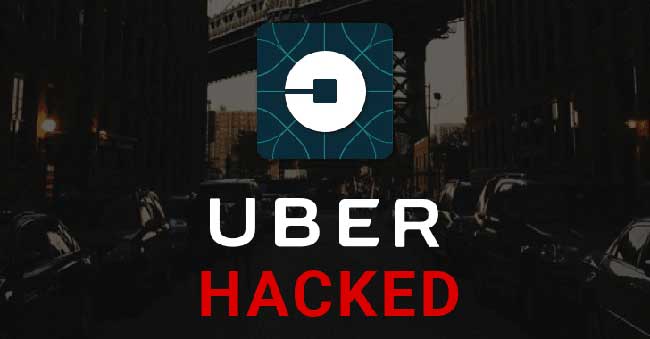Uber is in headlines once again—this time for concealing last year's data breach that exposed personal data of 57 million customers and drivers
Uber Technologies Inc gave hackers $100,000 to keep secret a massive breach last year that opened some personal information of about 57 million accounts of the ride-service provider, the company said on Tuesday.
Discovery of the defense-up of the event occurred in the firing of two operators responsible for its acknowledgment to the hack, said Dara Khosrowshahi, who replaced co-founder Travis Kalanick as CEO in August.
“None of this should have happened, and I will not make excuses for it,” Mr. Khosrowshahi said in a blog post.
The breach happened in October 2016 but Mr. Khosrowshahi said he had only recently learned of it.
Amid other controversies
The hack is an extra controversy for Uber on top of sexual harassment charges, a claim claiming trade secrets theft and multiple federal criminal probes that culminated in Mr. Kalanick's ouster in June.
That borrowed knowledge added names, email addresses and mobile phone numbers of Uber users around the world, and the names and license numbers of 600,000 U.S. drivers, Mr. Khosrowshahi said.
Uber passengers need not worry as there was no evidence of fraud, while drivers whose license numbers were stolen would be offered free identity theft protection and credit monitoring, Uber said.
Two hackers gained access to proprietary information stored on GitHub, a service that allows engineers to collaborate on software code. There, the two people stole Uber's credentials for a separate cloud services provider where they were able to download driver and rider data, the company said.
A GitHub spokeswoman said the hack was not the result of a failure of GitHub's security.
“While I can't erase the past, I can commit on behalf of every Uber employee that we will learn from our mistakes," Mr. Khosrowshahi said.
“We are changing the way we do business, putting integrity at the core of every decision we make and working hard to earn the trust of our customers.”
Investigation opened
Mr. Khosrowshahi said Uber had begun notifying regulators. The New York attorney general has opened an investigation, a spokeswoman said.
Uber said it had fired its chief security officer, Joe Sullivan, and a deputy, Craig Clark, this week because of their role in the handling of the incident. Mr. Sullivan, formerly the top security official at Facebook Inc and a federal prosecutor, served as both security chief and deputy general counsel for Uber.
Mr. Kalanick learned of the breach in November 2016, a month after it took place, a source familiar with the matter told Reuters. At the time, the company was negotiating with the U.S. Federal Trade Commission over the handling of consumer data.
A board committee had investigated the breach and concluded that neither Mr. Kalanick nor Salle Yoo, Uber's general counsel at the time, were involved in the cover-up, another person familiar with the issue said. The person did not say when the investigation took place.
Uber said on Tuesday it was obliged to report the theft of the drivers' license information and had failed to do so.
Mr. Kalanick, through a spokesman, declined to comment. He remains on the Uber board of directors, and Mr. Khosrowshahi has said he consults with him regularly.
Many companies paying hackers
Although payments to hackers are rarely publicly discussed, FBI officials and private security companies have told Reuters that an increasing number of companies were paying criminal hackers to recover stolen data.
“The economics of being a bad guy on the Internet today is incredibly favorable,” said Oren Falkowitz, co-founder of California-based cybersecurity company Area 1 Security.
Uber has a history of failing to protect driver and passenger data. Hackers previously stole information about Uber drivers and the company acknowledged in 2014 that its employees had used a software tool called “God View” to track passengers.
Source:-thehindu





nice post
ReplyDelete